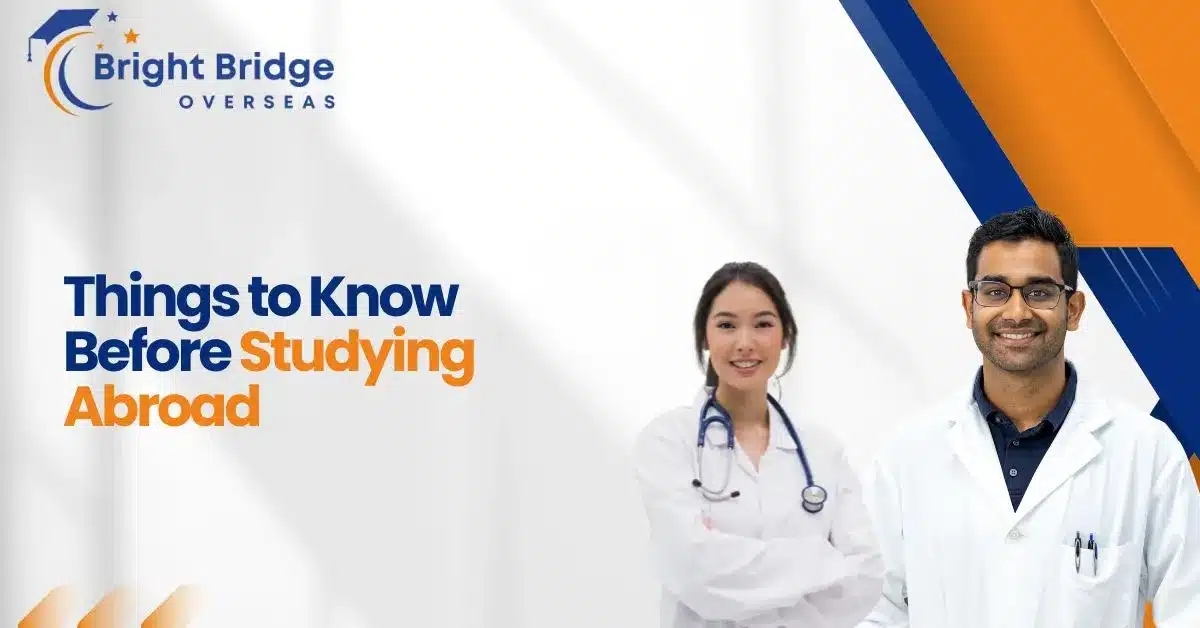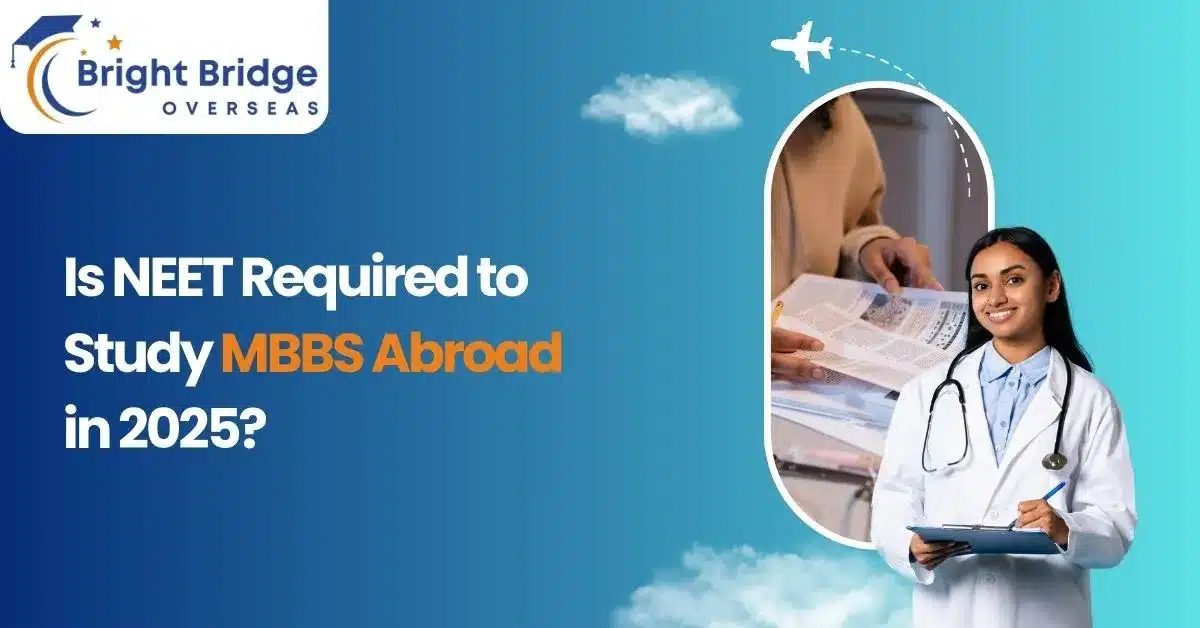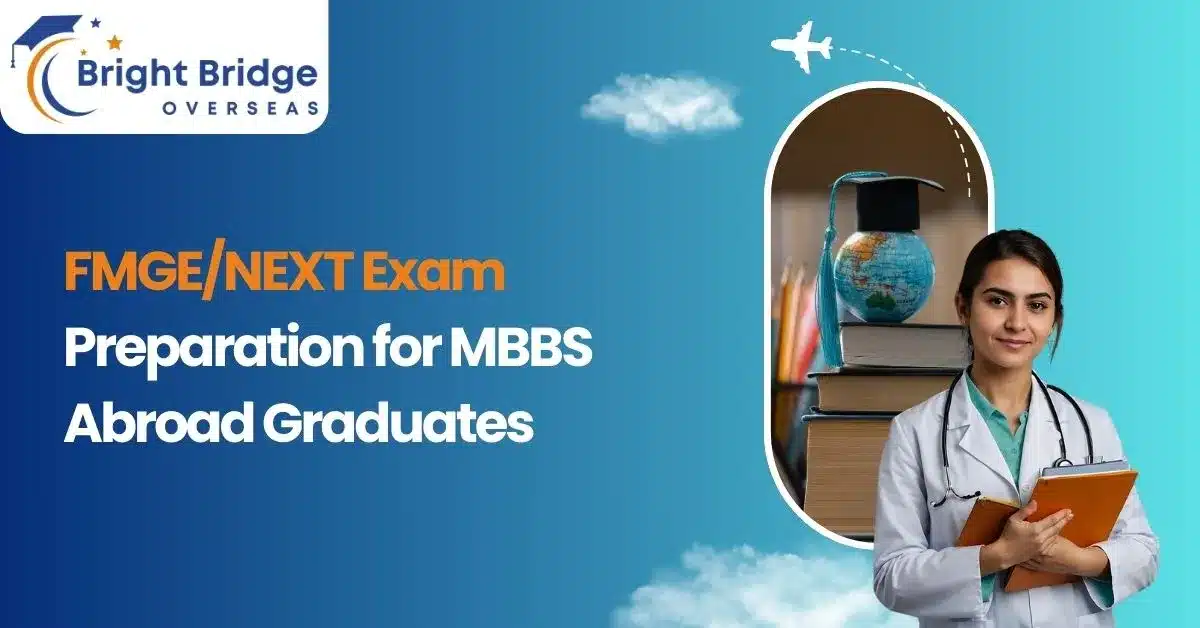Choosing to study MBBS abroad is a life-changing decision for many Indian students. With increasing…

Studying abroad is an exciting and transformative experience that opens up numerous academic and cultural opportunities. However, proper planning and understanding of the essential aspects of studying abroad are crucial to making the most of your international education journey. Here’s a comprehensive guide on things you should know before pursuing studies overseas.
Table of Contents
Research Your Destination
- Academic Reputation: Ensure the country and institution offer accredited programs aligned with your career goals.
- Cultural Adaptation: Learn about the local culture, language, traditions, and social norms.
- Safety and Security: Check safety ratings and follow government advisories for international students.
Understand the Admission Requirements
- Eligibility Criteria: Verify academic qualifications, language proficiency (IELTS, TOEFL), and entrance exams required.
- Application Deadlines: Be mindful of application dates to avoid missing important deadlines.
- Recommendation Letters and Essays: Prepare strong supporting documents that reflect your academic and personal strengths.
Financial Planning
- Tuition Fees and Living Costs: Calculate tuition fees, accommodation, food, travel expenses, and other living costs.
- Scholarships and Financial Aid: Research scholarships, grants, and financial aid programs available for international students.
- Part-Time Work Opportunities: Understand the country’s rules on student employment to support your expenses.
Student Visa and Documentation
- Visa Requirements: Check the visa application process, required documents, and interview preparations.
- Health Insurance: Purchase mandatory health insurance to cover medical expenses.
- Passport Validity: Ensure your passport is valid for the entire study period.
Accommodation and Transportation
- On-Campus vs Off-Campus: Decide between university-provided housing or renting private accommodation.
- Public Transport: Research the public transportation system for cost-effective travel within the city.
- Location Proximity: Choose accommodation near your university for convenience.
Cultural Adjustment and Language Skills
- Language Proficiency: Improve language skills if studying in a non-English-speaking country.
- Local Etiquette: Understand basic etiquette, cultural norms, and customs to foster positive relationships.
- Networking: Engage with student communities, clubs, and cultural events to ease your transition.
Healthcare and Insurance
- Health Services: Familiarize yourself with the local healthcare facilities and student medical services.
- Emergency Contacts: Keep a list of emergency contact numbers including local hospitals and embassies.
- Insurance Coverage: Ensure your insurance policy covers medical emergencies, accidents, and evacuation if needed.
Managing Academics
- Course Structure: Understand the academic curriculum, grading system, and class schedules.
- Study Resources: Utilize libraries, student resources, and online platforms for academic support.
- Time Management: Balance academics, extracurricular activities, and social life effectively.
Legal and Safety Considerations
- Student Rights: Be aware of your legal rights as an international student.
- Local Laws: Follow local laws and regulations to avoid legal issues.
- Emergency Protocols: Learn university-specific emergency procedures and resources.
Networking and Career Opportunities
- Internships and Part-Time Jobs: Gain practical experience through internships and work-study programs.
- Career Services: Utilize university career counselling and job placement services.
- Alumni Network: Connect with alumni to explore career insights and networking opportunities.
Frequently Asked Questions
What should students know before studying abroad?
Students should know about the admission requirements, visa process, financial planning, accommodation options, cultural differences, and academic expectations before studying abroad.
What to get before studying abroad?
Before studying abroad, students should secure important documents like a passport, student visa, health insurance, university acceptance letter, financial proof, and any necessary medical records.
How to prepare to study abroad?
Preparation includes researching the destination, budgeting finances, arranging accommodation, improving language skills, and understanding cultural norms. Also, pack essentials and stay organized with required documents.
Is studying abroad hard?
Studying abroad can be challenging due to cultural differences, academic adjustments, and homesickness. However, with proper planning and a positive mindset, it can be a highly rewarding experience.
Conclusion
Studying abroad is a rewarding experience that enhances your academic growth and broadens your global perspective. By planning ahead and staying informed, you can navigate the challenges and make the most of your international education journey. Safe travels and best of luck in your studies!


